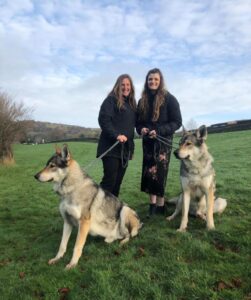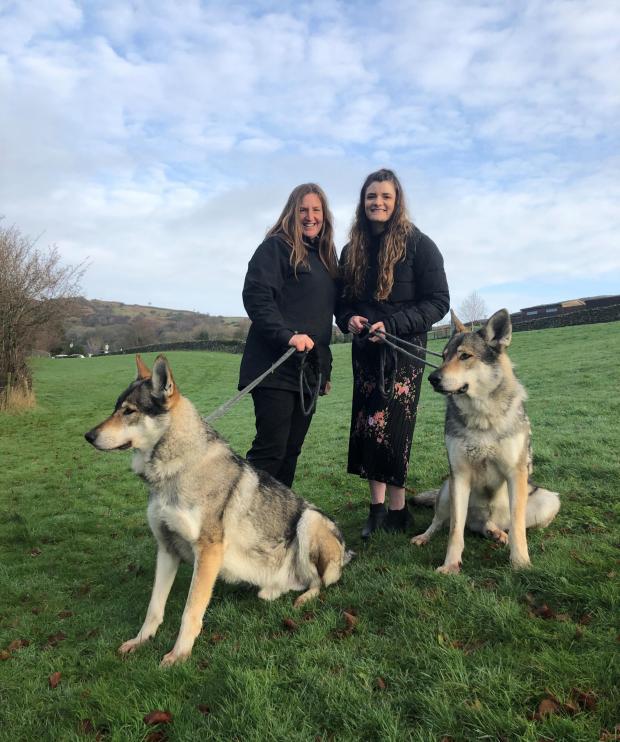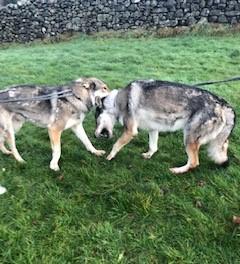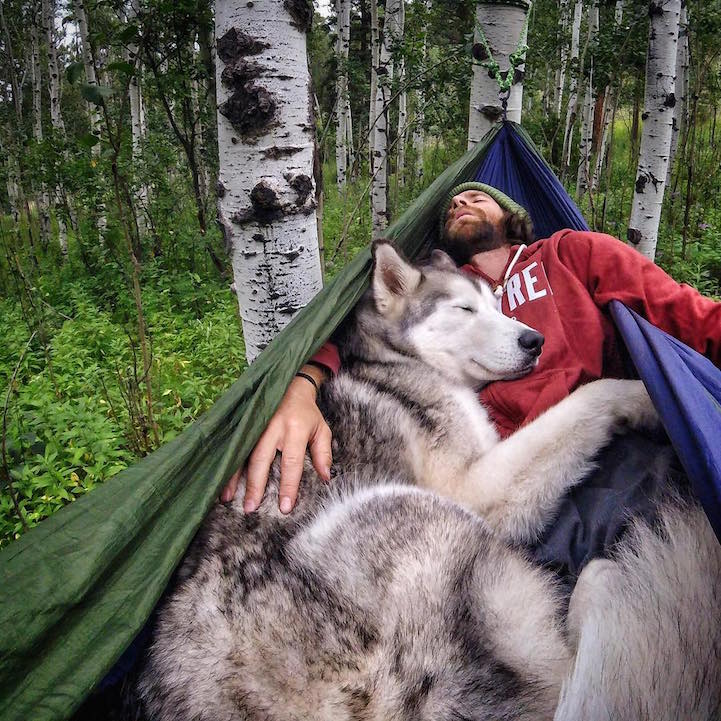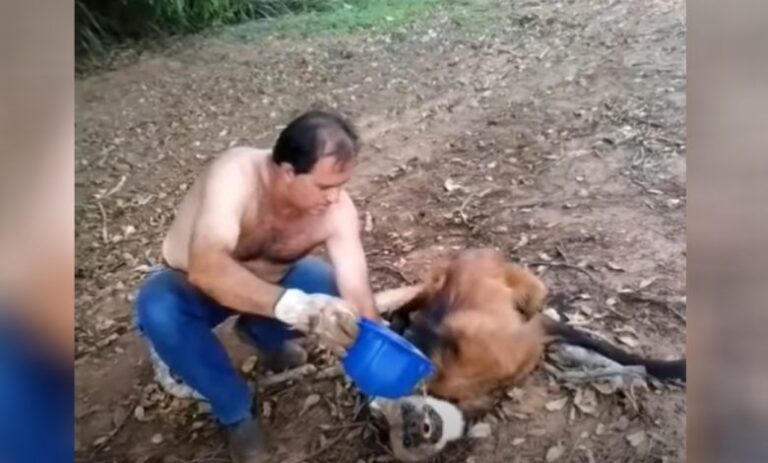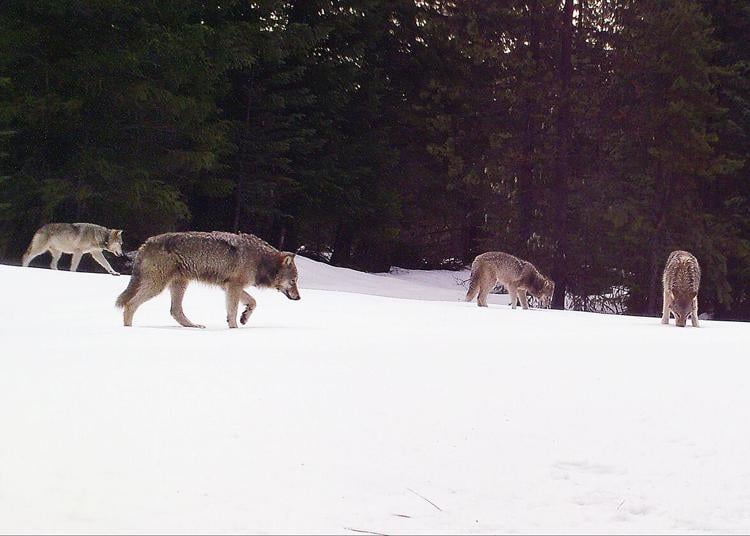The wolf-hybrids, now 6-years-old, have been raised by Dee and her husband since they were just six months. Surviving on a diet of 2kg of fresh meat per day, the animals have a combined weight of 107.5 kg and a height (when raised on their back legs) of more than five and a half foot.
According to Dee, the hybrid duo have very different personalities with Kajika adopting the role of the pack leader and Maska as pack defender and protector.
The experience began by introducing the wolf-hybrid’s to visitors’ smells, primarily through placing your hand in the cage and allowing the animal’s to acquaint themselves with new scents.
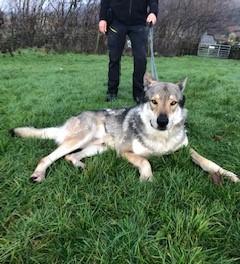
After this, the hybrid’s were released from the cage and allowed to interact with the new people. They were then walked along a nearby field, always attached to a leash, where participants were able to observe their behaviour in a natural and safe environment.
Widely demonised within film and media, programme director, Dee Ashman, stressed the misconception surrounding wolves and that in truth “they are calm and non-aggressive animals who only act threatening when provoked.”
She added that “Hollywood has widely popularised the belief that wolves are vicious predators which just isn’t the case”.
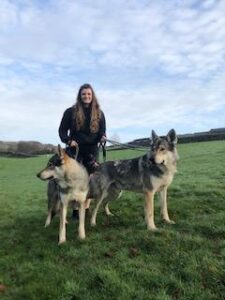
Following this, spectators are able to witness a real wolf howl, which can travel up to six miles through woodland areas.
Dee commented that there are a broad range of wolf howls which are unknown to most people such as: celebration howls, territory howls, lone wolf howls, regrouping howls and family bonding howls, which we were privileged to witness today.
Dee encouraged the wolf-hybrids to howl through imitating the sound herself and motioning the animals to copy. The sound was piercingly loud and intends to strengthen the social bond between pack-mates.
Dee revealed that the howling provokes a range of responses within her customers. She said that “often people become overwhelmed with emotion and cry after hearing the howls – it can be a very spiritual event.”
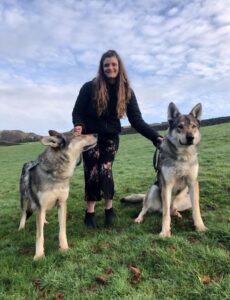
Beyond this, however, Dee expressed the necessity of wolves within the eco-system. She labelled them as “key-stone species within the environmental structure”.
“When wolves catch something they create a secondary food source for lots of other animals and this has a dramatic knock-on effect throughout the eco-structure.”
She added that “wolves have a massive impact on the entire eco-system.” As key-stone species, wolves change the behaviour of their prey due to a ‘fear curve’ which causes animal targets to move more and, by consequence, expand their habitat. This then allows the size of prey population to be controlled.
However, the Predator Experience director does not support the reintroduction of wolves in the Lake District, calling it “impractical”. She went on to say that “The Lakes don’t provide a big enough environment for the species to roam in, a bigger landscape would need to be provided for successful reintroduction”.
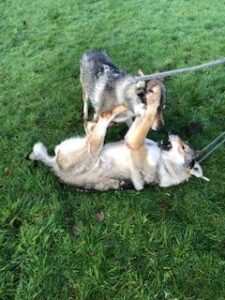
Instead, Dee opts for the ‘rewilding’ of the wolf in much softer ways.
The Predator Experience is a unique and magical interaction with one of wildlife’s most misunderstood creatures.
As well as interacting with the wolf-hybrids, partakers are educated on wolf conversation and its vital role within nature’s fragile eco-system. The experience is a perfect treat for anyone interested in the wolf species.
